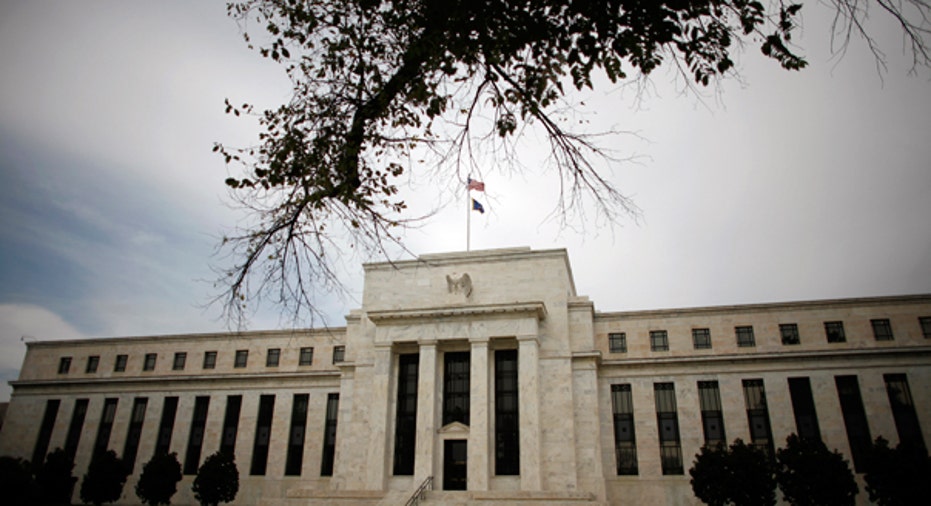Did Washington Just Make it QE4EVA?

Now that the debt-ceiling drama is (temporarily) over, Wall Street is back to focusing its attention on the Federal Reserve and the big question is when it might start to rein in its monetary policy.
Washington’s 11th-hour budget deal and the 16-day government shutdown has thrown a new wrinkle into projections of when the central bank will start tapering its $85 billion-a-month bond-buying program. The Fed surprised Wall Street when it didn’t start tapering back in September, and now it looks even less likely that any pullback from quantitative easing will come before the new year.
The Federal Reserve has long said it will start winding down its monetary policy when the economic conditions allow it, and Tim Yeager, finance professor in the University of Arkansas’ business school and former analyst at the St. Louis Fed, says there are at least two reasons growth might have slowed recently: higher Treasury interest rates and furloughed workers.
“The threat of default pushed up Treasury interest rates, and higher interest rates slow spending. However, Treasury rates seem to have dropped back to normal levels quickly after the agreement. So the direct effect of any economic slowdown from interest rates is gone for now.”
The shutdown delayed the release of numerous economic reports including September’s monthly jobs report and inflation data. The Labor Department will issue last month’s jobs report next week and October’s data will be released on Nov. 8. The monthly consumer price index, a closely watched gauge of inflation, was delayed, leaving investors and the Fed to guess how fast or slow prices are changing for households.
Yeager says the recent events on Capitol Hill make it slightly more likely that the Federal Reserve will continue its purchases of bonds a bit longer in the future. “But most likely, it will not affect the timing at all because the impact on the economy was small,” he says.
Other experts disagree, saying Washington’s drama will push off tapering until 2014.
“I wouldn’t expect any tapering until next year,” says Joe Heider, regional managing principal for Rehmann Financial Group. “Last week had a chilling effect on Wall Street and businesses making big decisions and the Fed is going to be very cautious in terms of beginning to taper.”
It’s important to note that Wednesday’s deal is temporary and only funds the government until Jan. 15, something that central bankers will have to keep in mind at its December meeting.
“Even with the debt deal off the table for now, the Fed isn’t going to have enough data to determine if the economy was at all damaged from the shutdown and debt debate,” says Paul Edelstein, director of Financial Economics, IHS Global Insight. “It’s going to take some time to get accurate numbers regarding inflation and employment."
However, if a long-term budget deal is passed before the Dec.18 Fed meeting, Edelstein expects a tapering announcing cuts between $10 billion and $15 billion.
Nicholas Colas, chief market strategist at ConvergEx Group, points out that consumer sentiment plunged during the prolonged political bickering -- and that could spook Fed members from turning off the free-money spigot.
“Sentiment really rolled over during this drama and it has to come back in order for the Fed to feel comfortable tapering,” he says. “If consumers aren’t confident enough to spend in the fourth-quarter, that will be bad for our economy because we rely on it so much. It’s called Black Friday for a reason, retailers need it so they can get out of operating at a loss and into the black.”
He doesn’t expect any tapering until the new year.
In the past, the Fed has set a target of a 6.5% unemployment rate for when it would start to end its quantitative easing, but Colas says members have become much more “cutesy” with their language. “They are backing away from setting hard deadlines because they saw what happened to markets when they first starting talking about tapering, so they’re being more vague with their expectations and bench markets.”
Even Dallas Fed President Richard Fisher says the tapering outlook has changed. "For those who really look at the data it is going to basically delay thought of changing course," he told The Wall Street Journal.
The confirmation process of current Fed Vice Chair Janet Yellen to chairman could offer hints of a taper start or delay.
“I would think that Bernanke would only start tapering this year if he had very explicit consent from Yellen to make sure she was on board,” says Edelstein
Colas notes her confirmation hearings could also shed some light on how she is going to approach the taper game. “We will learn what she thinks of the current state of the economy and her thought on monetary policy. She is a well-known dove and the central bank might delay any decisions to give her free reign next year.”



















